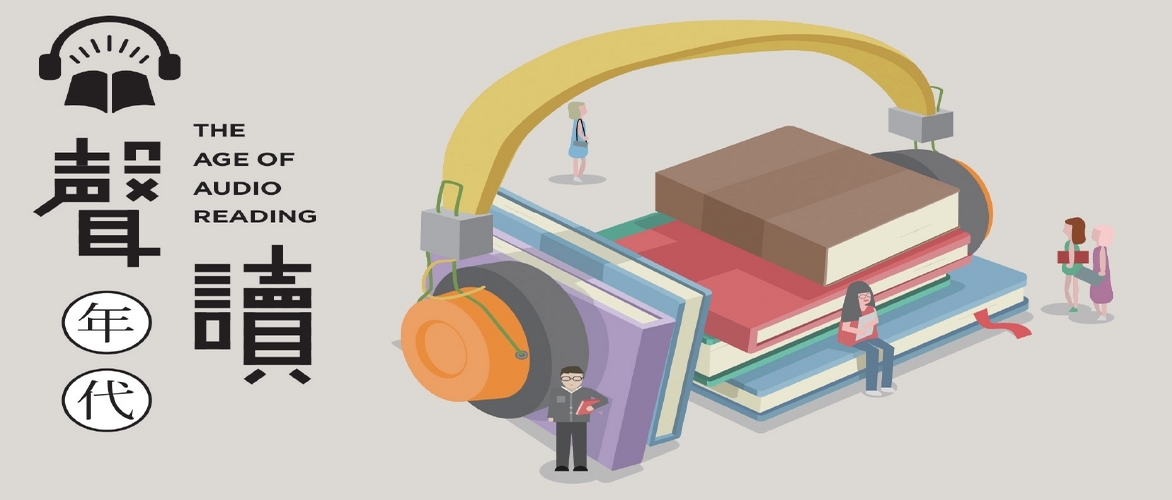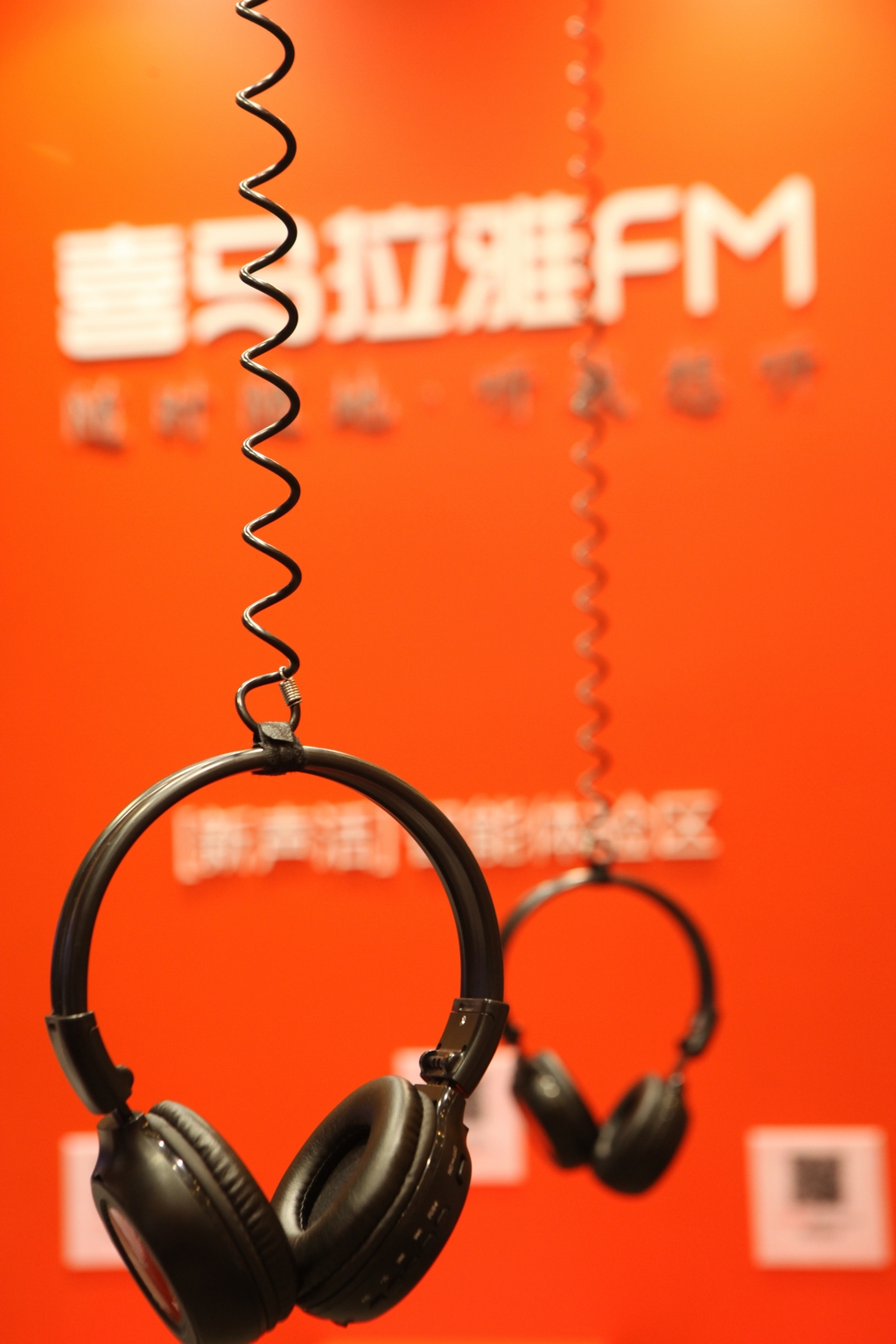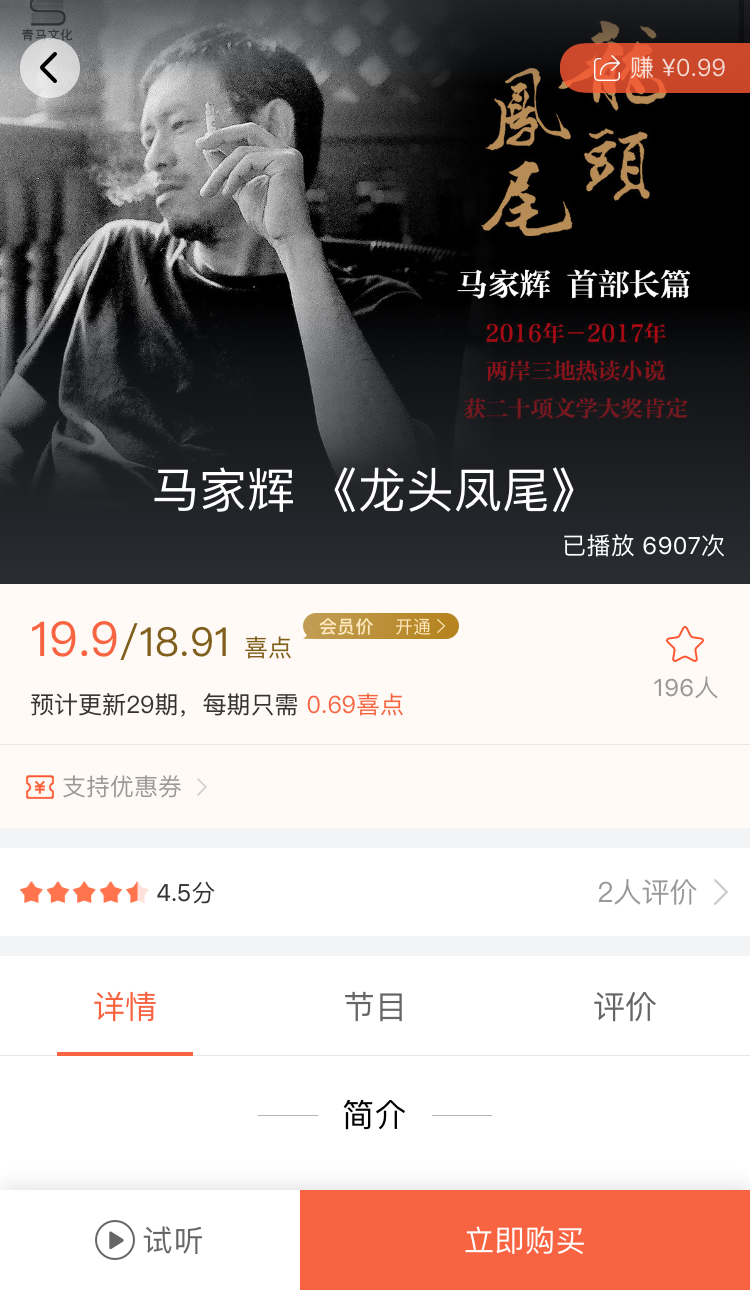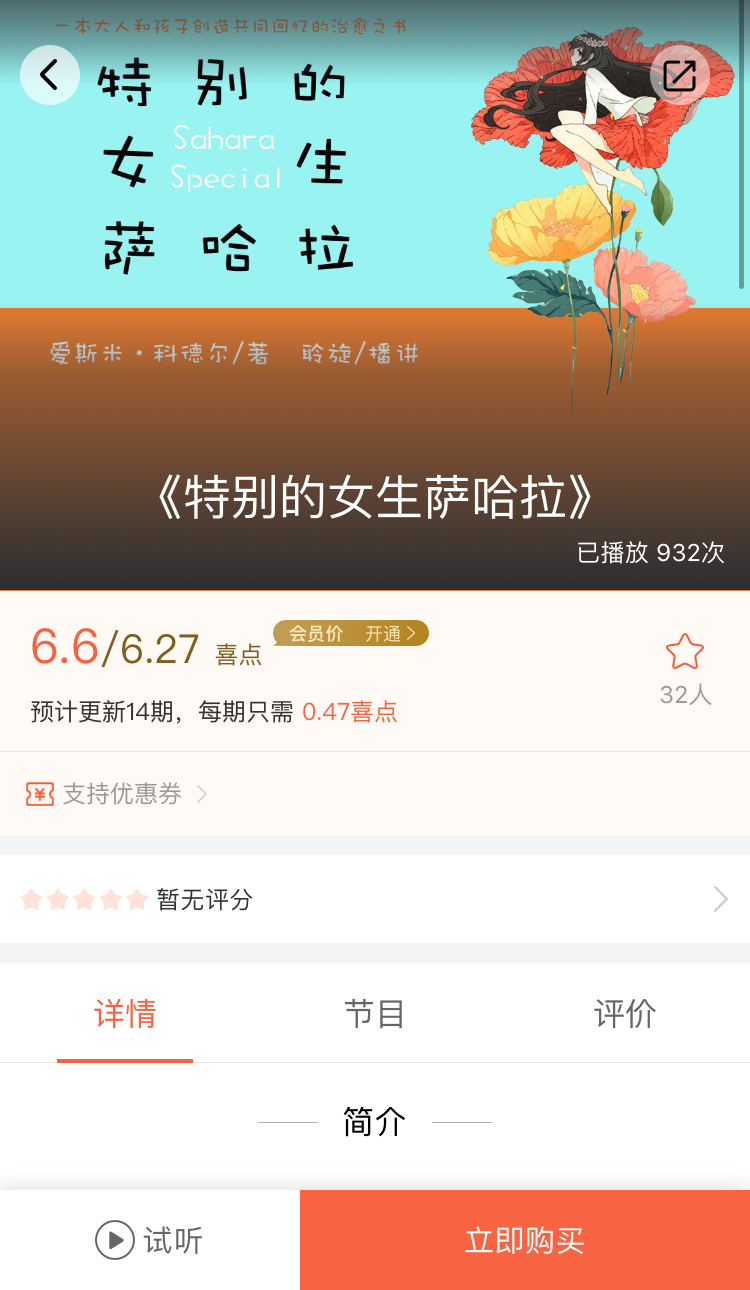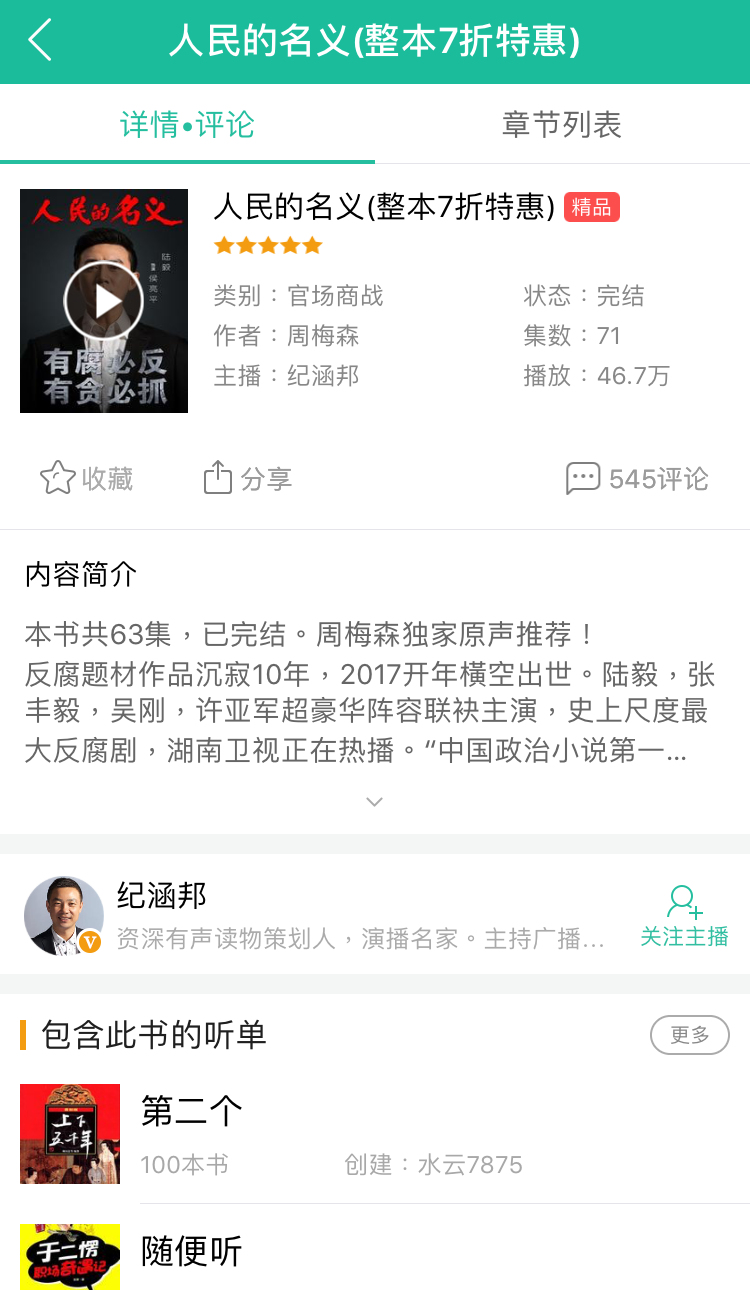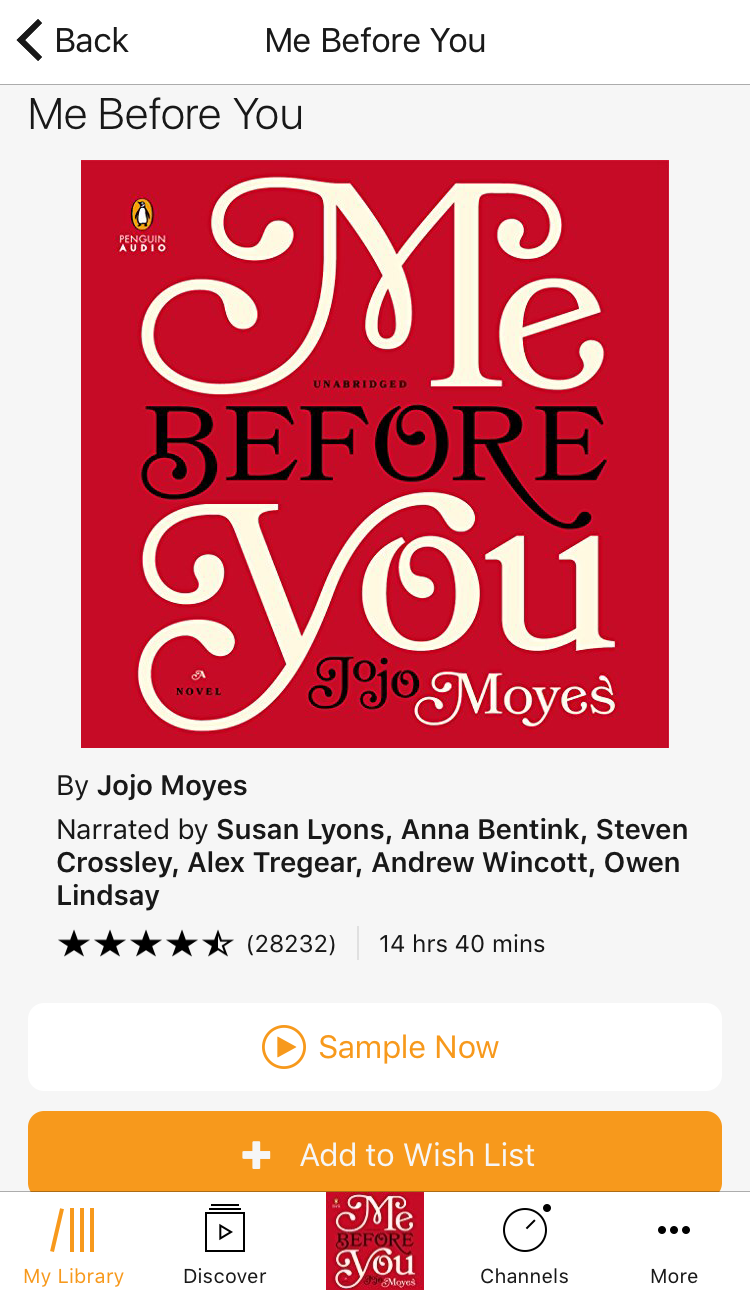An Interview with Douban's Vice President Yao Wentan by Books and the City

We learn about Douban Time because many subscribers are students from higher education institutions in Macao. Ms Yao Wentan, its Chief Executive Producer, told us the same thing, 'much to our surprise, the background data shows that Douban Time subscribers from Hong Kong and Macao do make up a certain portion in the user base.'
Paid online knowledge products, especially those in audio form, have come to be accepted by young intellectuals as popular information merchandise, which are also increasingly known and embraced among the youth of Macao, where paid original audio contents do not even exist.
Chris Anderson mentioned an interesting viewpoint about information consumption at the early stages of Internet development in his book Free: The Future of a Radical Price – "in 1971, at the dawn of the Information Age, the social scientist Herbert Simon wrote: 'In an information-rich world, the wealth of information means a dearth of something else: a scarcity of whatever it is that information consumes. What information consumes is rather obvious: it consumes the attention of its recipients. Hence a wealth of information creates a poverty of attention.'" Simon's insight has been materialising over time, given that regular readers nowadays are too ready to pay for hand-picked, quality content from reading platforms so long, as it does not consume too much of their time.
So Douban Time was born.
It launched Waking up – A Poetry Class with Bei Dao and Friends, the first edition of its paid online podcast in March this year. The 102-episode long programme was created by 16 Chinese renowned poets, poetry translators and experts such as Bei Dao, Xi Chuan, Liu Wenfei and Ouyang Jianghe. Pricing the programme at RMB128, the platform sold about a million copies and had around 10,000 paying subscribers five and seven days after its launch respectively. The following paid series, available shortly afterwards, also received wide acclaim. They included a talk on Dream of the Red Chamber by Bai Xianyong, a talk on the Records of the Grand Historian by Yang Zhao and a lecture on lyric writing by Yao Chien. In order to know more about the platform, we have interviewed Ms Yao Wentan, Vice President of Douban and Chief Executive Producer of Douban Time.
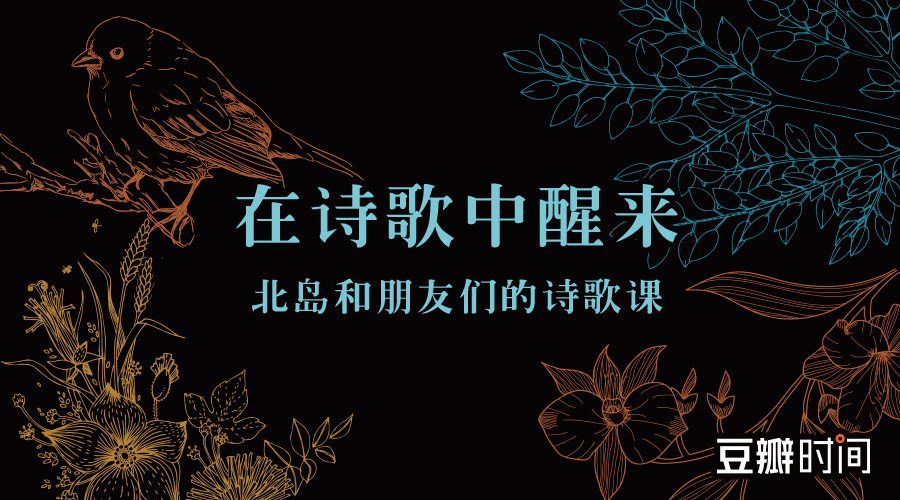

Books and the City x Yao Wentan
Books and the City (referred hereafter as C ): What was the preference or inclination of Douban Time in choosing the topics and hosts for the seven podcasts in Douban’s paid content experiment? Has there been any change in its readership?
Yao Wentan (referred hereafter as Y ): We would do some brainstorming before making each programme. Now we mainly make [programmes] for Douban's regular users and those that like Douban ( the potential users in the future ), with emphasis on several fields, such as reading, films, music, art and design, which includes architectural design. They are more about humanities and art appreciation. Our current partners are individuals as well as organisations. For example, we produced Bei Dao's programme with MoveableType Studios Inc., which is a very famous [organisation] in the mainland. We made the talk on Dream of the Red Chamber by Bai Xianyong with Imaginist. Our choices of hosts also have to do with art appreciation. For instance, many people have given talks on Dream of the Red Chamber, but Mr Bai Xianyong has a unique and remarkable understanding on Chinese literature. His lectures were well received in the United States and at the National Taiwan University.
We also pay great attention to our readership. Bei Dao's readership is generally aged between 27 and 35, while Bai's is slightly older. We have found that most users were born during 1985 to 1999, with women being the majority. About 63% of Douban users are women, which may also relate to women's fascination with online consumption. Most of them are white-collar workers in first-tier cities and some are university students.
C: In what ways do people usually get to know about 'Douban Time'? Is there any offline marketing campaign?
Y: Indeed, the integration of online and offline marketing is what we are working on at the moment. Take the case of Bai Xianyong as an example. After the release of his paid audio programme, he went to the Librairie Avant-Garde in Nanjing to launch Dream of the Red Chamber, which is a republication, in Chengyi edition by 'Imaginist', of the out-of-print classic edition once published by Lauréat Publications in Taiwan. The book is a reference book for his online programme, and the new book presentation was live-streamed.
C: What is the difference between the production of pay-to-read audio content and the paper books we normally read?
Y: [The former] poses greater difficulty. Like Mr Bei Dao's programme, recording one episode required more than a half day, and the script writing process and other preparation took up to a few weeks before that. After the recording, Bei Dao told me he had been extremely nervous. Thus, greater efforts must be spent on recording the audio content.
C: How do we interpret the word 'Time' in 'Douban Time'?
Y: In the past, we turned to 'books' when we wanted to acquire certain information and knowledge. However, this medium has never been free, as it provides more filtered and organised information compared to the diverse and chaotic pool on the Internet. Douban Time originated from the same idea: filter down quality contents for its users like 'books' do. We hope that the 'time' we spend on selecting contents will help to save 'time' for our users. There's also the concept of space if we look from another perspective. Users can enjoy a private and relaxed reading space only for themselves on the Internet, and [such an experience] brings pleasure back to reading.
Remark: There were already seven up-to-date paid audio programmes available on Douban Time by the completion date of this article. If you are interested, go to www.douban.com or download the Douban mobile application to try out this quality audio experience.

